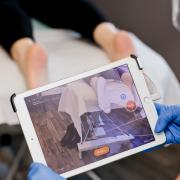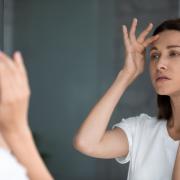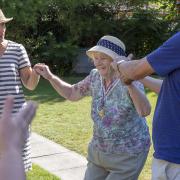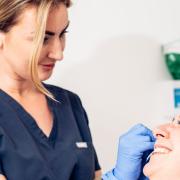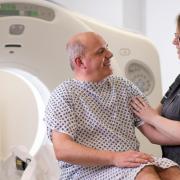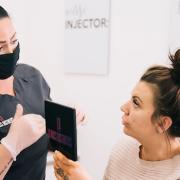Could your varicose veins be the sign of something more serious?
We chat with Mr Lukla Biasi, PhD consultant vascular surgeon and Dr Jemell Geraghty, DHRes tissue viability nurse consultant from Ad Integrum Vascular and Wound Care in Royal Tunbridge Wells to find out.
Q: What are varicose veins and are they a cosmetic or medical condition?
A: Varicose veins are chronically dilated and tortuous superficial veins with reversed blood flow due to incompetent, damaged valves. This can affect your lower limbs’ health.

Varicose veins can be a purely cosmetic inconvenience or the sign of an underlying medical condition; the pooling of the blood in the lower extremities may lead to swelling, skin changes and ultimately the risk of developing ulcerations. Often, varicose veins may bleed or cause localised painful inflammation (phlebitis).
The reality is varicose veins affect the young and fit as well as older people, men and women equally.
Early diagnosis, lifestyle adjustments and surgical intervention can prevent varicose veins from worsening, which is why we recommend seeking professional medical advice sooner rather than later.
Q: How can I tell if I have varicose veins and what are the risks?
A: Check the skin of your legs for any sign of discolouration. Can you feel any uneven, dry, or hardened texture? Do you suffer from leg swelling, especially at the end of the day? These may be early signs of venous hypertension.
Risk factors of varicose veins are:
- family history of varicose veins
- sedentary lifestyle
- previous injuries, long bone fractures, orthopaedic procedures
- deep vein thrombosis (DVT)
- being overweight for your height
- reduced ankle joint mobility or calf muscle waste
- being pregnant or having had multiple pregnancies
Q: What are the stages of venous disease?
A: There are different stages of venous disease (CEAP Classification) which is why it’s best to book an appointment to receive a diagnosis.
- C1: Spider veins and reticular varicose veins (1-2 mm in diameter) which are just a cosmetic concern.
- C2: Larger veins (>3mm) are often suggestive of incompetent valves (truncal reflux) leading to venous hypertension.
- C3: Oedema, more commonly known as swelling. Oedema is a build-up of fluid; this can be very uncomfortable and may leave your legs feeling heavy and aching. The good news is that oedema can be alleviated by appropriate support stockings and lifestyle advice.
- C4: Skin pigmentation or eczema. Hemosiderin staining is a typical sign of moderate to severe venous insufficiency. It is easy to recognise as a brown, rusty yellow or black skin discolouration, often around the shin and ankles. This happens when the haemoglobin in the red blood cells leaks out of the superficial veins due to the venous stasis. Although not painful, it can make the skin drier, frailer and more susceptible to breakdown.
- C5 –6: Venous ulcers. Leg ulcerations are a physical, psychological and economic burden. They may impact on your personal and social life. The correct treatment should include appropriate wound care, compression therapy and ‘key-hole’ surgery options.
When you come to see us, we will design a bespoke treatment plan that works for you.

Q: How can you treat varicose veins?
A: There are a variety of therapeutic options available to help you prevent and treat varicose veins. In your consultation, we’ll review your medical history and get to know you and your routine. This will help us develop a holistic outlook of your condition. We can suggest changes to your lifestyle and nutrition.
Within two weeks of contacting us, you’ll meet with Mr Biasi to have a Duplex scan of your veins and to identify the most suitable treatment strategy.
If indicated, varicose veins can be treated with a minimally invasive, ‘walk-in walk-out' key-hole procedure called thermal-ablation. This effectively replaces the old fashion “stripping” of the veins.
Mr Biasi will discuss with you how well each treatment is likely to work and the possible limitations or side effects.

If you have an ulcer requiring compression therapy or complex wound care management, Jemell will look after you and liaise directly with your GP nursing team.
We treat to heal and are dedicated to delivering timely, effective treatment that enables you to feel empowered, in control, and comfortable in your skin.
Q: Why choose Ad Integrum Vascular & Wound Care?
A: We deliver a patient-centred, multidisciplinary service meaning we offer state-of-the-art nursing and vascular surgery expertise; we use the latest technologies to help diagnose and heal vascular conditions.
Here at Ad Integrum Vascular & Wound Care, we believe in providing a kind, professional and personalised experience for every patient that comes to see us. We’re here to listen to your story and help you live life in the way you want.
To find out more or to book an appointment, visit vascularwoundcare.com.
Call 01892 882770 or email vascularwoundcare@gmail.com.















